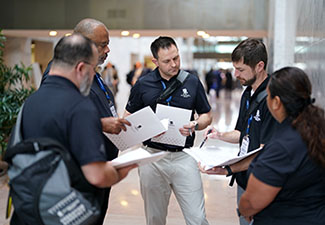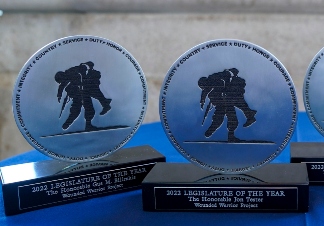Wounded Warrior Project Continues Fight for Major Richard Star Act
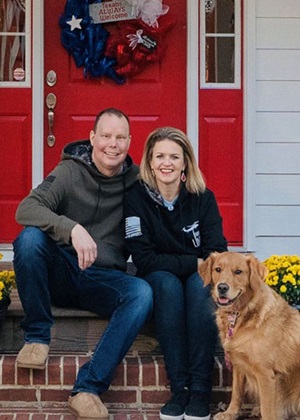
Tonya Star, wife of the late Army Major Richard Star, passed away on Aug. 12, 2024. Wounded Warrior Project is grateful for her work in advocating for the passage of the Major Richard Star Act. This interview took place in 2023.
Originally from Texas, Tonya Star was the wife of Army Major Richard Star, a post-9/11 veteran who contracted cancer due to toxic exposure while deployed in the Middle East. His diagnosis forced him to retire before reaching his 20 years of service.
Sadly, Major Star passed away in February 2021. Tonya continued advocating for veterans following his death before she passed away in August 2024. Their legacy of advocacy lives on as numerous veterans service organizations, including Wounded Warrior Project® (WWP), continue to fight for the passage of the Major Richard Star Act.
Understanding the Major Richard Star Act
The Major Richard Star Act is a legislative priority for WWP™.
- The bill allows veterans who were medically retired before reaching 20 years of service due to combat-related injuries or illnesses to receive both their retirement pay and VA disability compensation at the same time.
- As the law stands, military retirees must have at least 20 years of service and a disability rating of at least 50% to collect both benefits. All other military retirees must offset or forfeit a portion of these benefits.
- The bill currently has bipartisan support from 73 Senators and 327 House members.
| HOW TO HELP ADVOCATE |
|
TAKE ACTION and join WWP in telling Congress to pass the Major Richard Star Act now. You can help the more than 50,000 combat-related retired veterans who are unable to rightfully receive their DoD retirement and VA disability compensation. |
Former service members who medically retired from the military with less than 20 years of service AND are eligible for Combat-Related Special Compensation (CRSC) would no longer have their benefits reduced by the offset. This includes those who were retired for injuries sustained in combat and combat-related training.
Qualifying veterans would not be required to take advantage of the Major Richard Star Act, but it would provide other options. By utilizing CRSC’s “open season,” which would remain, veterans could choose when to take advantage of the bill’s provisions. This bill gives veterans the power to choose the right path for themselves and their families.
Q&A with Tonya Star
Tonya became a caregiver after her husband’s cancer diagnosis, but she also became a full-time advocate. Tonya championed the Major Richard Star Act alongside her husband and, following his passing, continued her fight for the more than 53,000 veterans it will benefit.
In 2023, Tonya helped answer some questions about her husband, the heroic Major Star, and this important legislation.
Question: How did you and Major Richard Star first meet?
Answer: We met in College Station, Texas, where Richard was stationed. We had mutual friends from church. We went to lunch together and that’s how we met. Ours was what you would consider a non-traditional love story, meeting somebody in your late 40s; we both had families and adult children from previous marriages, and things are just very different when you approach dating from that point in your life. So, we started seeing each other, but he was in the reserves, and six months after we started dating, he was unexpectedly deployed to Kuwait to replace an officer who ended up getting sick.
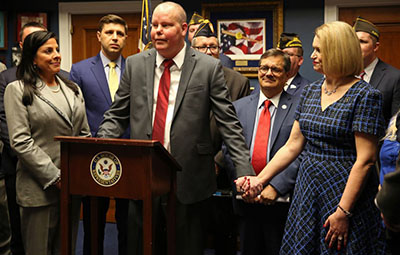
Q: The process of being medically retired is notorious for its confusing forms and rules that discharging veterans must learn on the fly. How did you and Richard know that a law needed to be changed?
A: Rich started having his initial symptoms when he would be going on his runs while still in Iraq. When he got his diagnosis, Walter Reed had plenty of support services to help us and walk us through the process. However, Rich knew that our financial benefits were not adding up. We knew from the beginning that he had stage 4 cancer and that these benefits would be important for us. It was then that we knew something had to be changed. It was pretty immediate.
Q: Richard lost his courageous battle with cancer almost exactly a year after the Major Richard Star Act was first introduced in February 2020 by Rep. Gus Bilirakis (R, Fla.-12th District) and Rep. Raul Ruiz (D, Calif.-25th District). Since you started this journey, what moments have impacted you the most?
A: I think it’s getting to meet the veterans and the families this bill would impact. Sitting with them and hearing their stories. Investing in them. Everyone has a story that is tragic and unique. It is hard to describe when something is so profound and on such a large scale.
Q: How would passing the Major Richard Star Act affect post-9/11 warriors?
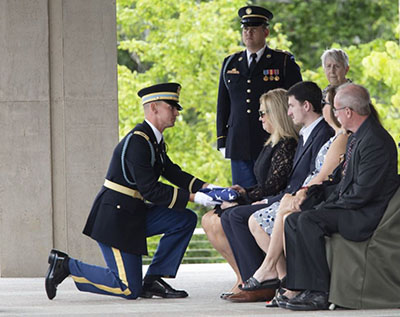
A: I think it would be HUGE for [their] self-esteem – like they matter and what they did was important, helping with their mental health. It’s not just a rubber stamp; this will affect their day-to-day life and help them provide for their families. My dad was a Vietnam veteran, and I know that those veterans just wanted to come home to a nation that appreciated what they did. Like their lives mattered. Like they won this battle. This would be their win.
Q: Wounded Warrior Project flies in warriors from all over the country to advocate for legislation that benefits post-9/11 veterans, like the Major Richard Star Act. What would you like to say to these warriors?
A: For me, it’s “thank you.” I have so much gratitude for all those who have taken [this legislation] on, especially those who have taken it on even though it’s not their battle. To those who are fighting for this – not for them but for their fellow veterans – I can’t thank them enough.
WWP strongly believes that veterans who medically retired due to injury, whether incurred in combat or not, deserve these benefits to honor their service. Regardless of the time spent in service, these veterans defended this country and earned these benefits through their extraordinary sacrifice.
Contact: — Michael Nilsen, Public Relations, advocacy@woundedwarriorproject.org
About Wounded Warrior Project
Since 2003, Wounded Warrior Project® (WWP) has been meeting the growing needs of warriors, their families, and caregivers — helping them achieve their highest ambition. Learn more about Wounded Warrior Project.

